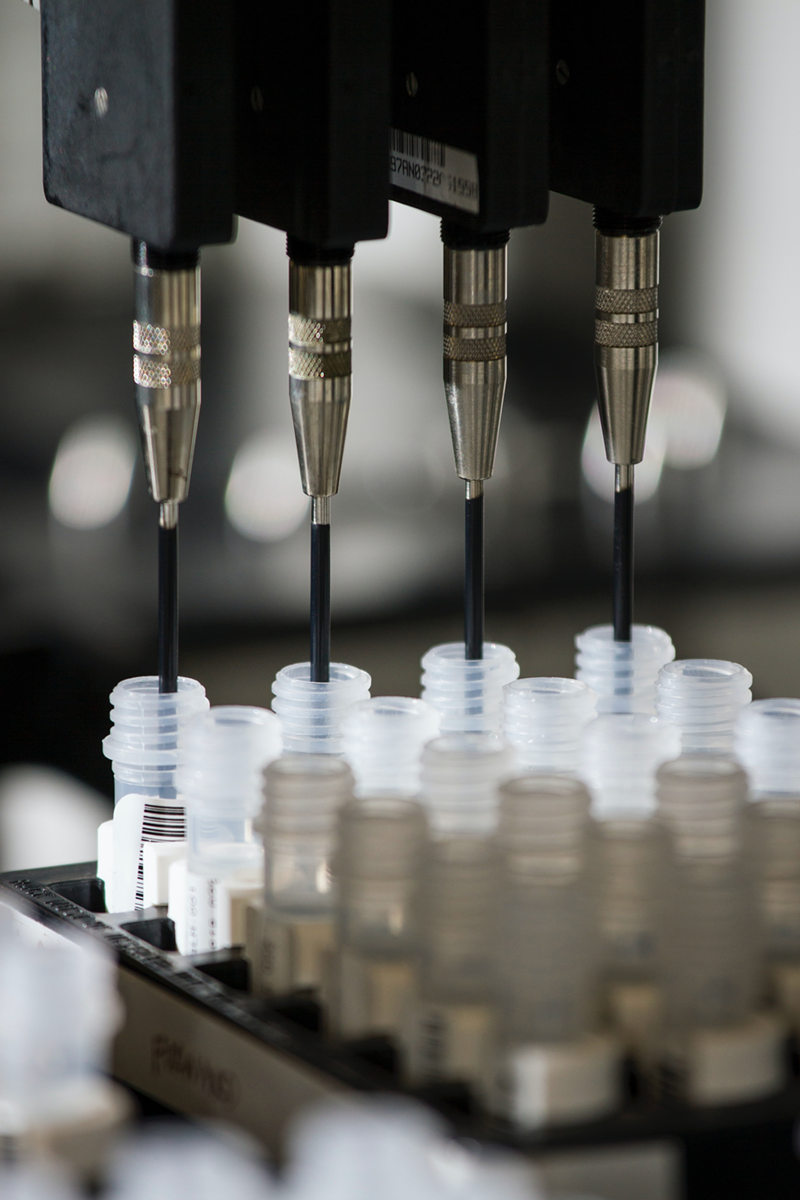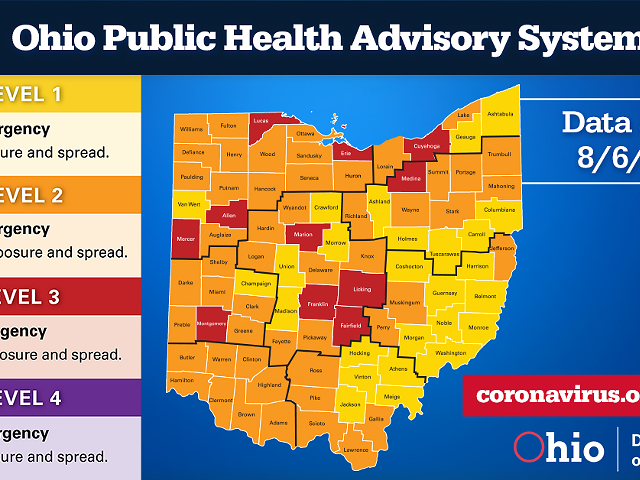Russia has launched a new Sputnik — this time, a vaccine to combat the coronavirus.
Russian President Vladimir Putin announced in a televised cabinet meeting August 11 that the country is ready to roll out the world’s first COVID-19 vaccine to the general public. Teachers and doctors may be among the first inoculated.
Dubbed Sputnik-V, after the first artificial satellite, the vaccine has been tested in only a small number of people. The announcement came even though no published information is available about the vaccine’s safety and efficacy, and scientists have yet to complete the final phase of clinical testing to determine whether it works. Nonetheless the vaccine has been submitted to the health ministry for registration, comparable to applying for approval from the U.S. Food and Drug Administration.
It “works quite effectively. It forms a stable immunity,” Putin declared.
Researchers around the world have been racing to create a vaccine (SN: 7/10/20), but none have been thoroughly vetted yet. Russia has tried various tactics to get in front of the competition, with hackers in the country reportedly trying to steal vaccine data from the United States, Great Britain and Canada. Being the first to approve a vaccine may be a matter of national pride, but the declaration of victory may be premature, some vaccine researchers say.
Usually, vaccines go through three phases of clinical tests. The first two phases test the vaccine in small numbers of people for safety and may collect data on whether people make antibodies or have other responses to the vaccine. The third phase tests the vaccine in thousands of people to determine whether it lowers the infection rate. That third phase of testing has not even started for the Russian vaccine.
In an open letter to the minister of health, the Moscow-based Association of Clinical Trial Organizations urged the government to delay approval of the vaccine until after Phase III data is in.
“Without that data, it seems reckless to proceed to approving the vaccine,” says virologist Onyema Ogbuagu of the Yale School of Medicine. He is leading Phase III testing at Yale of a vaccine candidate from the drug company Pfizer.
While information is limited about Russia’s COVID-19 vaccine, here’s what we know so far.
How does the vaccine work?
Researchers at the Moscow-based Gamaleya Research Institute of Epidemiology and Microbiology, part of the Russian Health Ministry, developed the two-part vaccine. Both parts start with viruses that cause the common cold. Those viruses, adenovirus 5 and adenovirus 26, were each engineered to make the coronavirus’ spike protein. That protein helps the coronavirus latch on to cells and infect them. Since it is on the surface of the virus, it’s also a target for antibodies against the virus.
This approach is similar to other coronavirus vaccines in the works. The University of Oxford working with AstraZeneca uses a chimpanzee adenovirus. And a vaccine devised by China-based CanSino Biologics Inc. is based on adenovirus 5. Johnson & Johnson uses adenovirus 26 for its vaccine. Those vaccines have gone through initial safety tests where participants made antibodies against the virus and didn’t have any serious side effects (SN: 7/21/20).
According to the latest trial information on Sputnik-V, available at clinicaltrials.gov, a U.S. website that tracks clinical trials, 38 people first got a shot containing the engineered adenovirus 26 component. Three weeks later, they received booster injections of the engineered adenovirus 5 component. Results of the study have not yet been published.
Using two adenoviruses instead of one is unusual, but may help solve a potential problem, says Daniel Kuritzkes, a virologist and infectious diseases doctor at Brigham and Women’s Hospital in Boston. Because the body may develop antibodies to the adenovirus carrying the spike protein, a booster shot with that same virus might be rendered useless. The two-step inoculation with different adenoviruses may sidestep that issue.
How many people have been tested?
It’s unclear. The registered trial tested 38 people. That’s “in the ballpark...to make sure it doesn’t kill people, essentially,” Ogbuagu says. “That’s a good number for a Phase I study, but that’s just the beginning of vaccine development,” he says.
Russian business people and politicians, including one of Putin’s daughters, have also been given access to the vaccine, Bloomberg reports. And the Russian military completed Phase II tests of the vaccine in July, First Deputy Defense Minister Ruslan Tsalikov said in an interview published in the Argumenty i Fakty newspaper.
Usually, Phase II studies test a vaccine in hundreds of people. But the letter from the clinical trials association says the vaccine has been tested in fewer than 100 people. By contrast, multiple vaccines around the world are now starting Phase III tests with 30,000 people each.
Why are the larger studies needed?
The Phase III tests are what determine whether vaccines actually protect people from infection.
Testing large numbers of people also allows researchers to uncover rare side effects that might not show up in smaller studies, says Walter Orenstein, associate director of the Emory Vaccine Center in Atlanta. Some side effects may show up in 1 in every 1,000 people. “You’re unlikely to detect that in a study of 200 people,” he says.
Even after vaccines are administered to the general public, researchers will be on the lookout for even rarer safety concerns, such as autoimmune diseases triggered by the vaccine, Kuritzkes says. Scientists will also be watching to make sure antibodies made against the vaccine don’t make the disease worse, as has happened with dengue, he says.
Did the Russians win the vaccine race?
“It’s not a contest, or it shouldn’t be,” says Kawsar Talaat, an infectious diseases doctor at the Center for Immunization Research at the Johns Hopkins Bloomberg School of Public Health. “These are not national products. These are international companies that make these vaccines for the world.” The Sputnik-V vaccine probably would not be approved for use in other countries without Phase III trials.
The best case scenario is that the Russians got lucky and produced a safe and effective vaccine, Talaat says. “The worst is to have a vaccine that doesn’t work and decimates the public’s trust in vaccines.” And there’s no prize for producing a vaccine that doesn’t work or that isn’t safe, scientists say.
Most of the vaccines against COVID-19 now in development have demonstrated that they are at least reasonably safe and are triggering production of antibodies and immune cells that may help protect against the virus, Kuritzkes says. The Russian data have not been made public, so it is impossible to tell whether their similar claims are true. But if the data compare with those from other vaccines, Sputnik-V is likely to be safe and efficacious. “Of course, there’s a big difference between predicting it and proving it,” he says.
Even if one country or company develops a vaccine first, others will be needed, Kuritzkes says. “We need as many vaccine candidates in development as we can muster. No single company or country can produce enough vaccine to vaccinate the world, and the more success we have, the better off everyone is going to be.”
This story was originally published by Science News, a nonprofit independent news organization.







